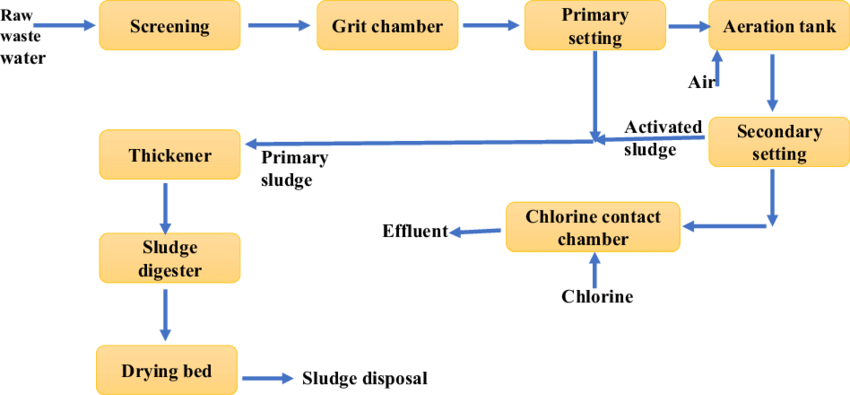Things about Reclaim Waste
An Unbiased View of Reclaim Waste
Table of ContentsWhat Does Reclaim Waste Mean?The 10-Minute Rule for Reclaim WasteThe Basic Principles Of Reclaim Waste The 9-Minute Rule for Reclaim WasteEverything about Reclaim WasteNot known Incorrect Statements About Reclaim Waste

Never ever place unsafe substances down sinks, commodes or stormwater drains pipes Substances consisting of gasoline, grease, oil, chemicals and herbicides, and solvents such as paint pole dancers should not be poured down sinks, commodes or stormwater drains pipes. These substances are tough to get rid of in the sewage treatment process and create pollution problems in our regional rivers.

Although fluid waste is a term that covers a wide variety of materials, there's a great reason leaving its disposal to the specialists is recommended. Fluid waste is non-solid product that has no more use and must be treated and taken care of according to local, state and federal policies.
Reclaim Waste Fundamentals Explained
Examples of liquid waste can consist of wastewater, fats, oils or grease, utilized oil, liquids, solids, gases or sludges and unsafe family fluids, there are some that are thought about to be more unsafe than others when it comes to the setting and the wellness of animals and humans alike. It's because of this that each state and territory have actually stringent policies connected to liquid waste management.
Fluid waste can be kept in holding tanks or packaged in drums, intermediate mass containers or approved tiny containers before either being dealt with or eliminated via outsourced vacuum cleaner trucks. Offered the nature of the materials, fluid waste can not go in the basic waste stream and there are stringent laws on exactly how to throw away it properly.
(http://peterjackson.mee.nu/where_i_work#c2441)Depending upon a decision of the degree of danger, it may be needed to remediate those sites. On top of that, harmful liquid chemical wastes are managed waste and should be tracked in conformity with the state waste regulations. Under the chain of guardianship and duties, owners are liable and responsible for waste created by a company.
Among the core applications for superabsorbent polymers (SAPs) is liquid waste solidification. industrial wastewater treatment. SAPs are used by waste monitoring experts to avoid potentially unsafe liquids from getting in waterways, groundwater aquifers, and various other delicate atmospheres. Due to the fact that fluids can swiftly deliver contaminants right into environmental receptors and possibly add to geotechnical failings, liquid wastes are usually restricted from disposal in land fills
The Of Reclaim Waste
Basically, totally free liquids are liquids that separate from the solid portion of waste material. Liquid waste can include the following: HDD mud and cuttings Garbage dump leachate Wastewater treatment sludge & biosolids Dug up sediments Oil and gas drill cuttings Resolving fish pond filth Hydro Excavation slurry Coal burning residuals/ash Container base sludge Concrete grinding/polishing slurry Associated Post: For a functional instance of complimentary liquids separating from waste product, consider the following scenario: A waste monitoring contractor tons a dump vehicle with sludge from a wastewater therapy plant's oygenation container, throughout a regular upkeep event.
When the vehicle driver gets i was reading this here at the garbage dump, he notices water seeping from the sludge and putting from the dump truck. The lots was denied by the garbage dump and the chauffeur was forced to deal with the waste as a liquid waste at an unique facility, which increased the disposal costs greatly.
We additionally need to be liable for the appropriate disposal of our waste products. It is not enough that we pay waste disposal firms to take care of our rubbish.
More About Reclaim Waste

The dreamland is an excellent outside room with a lot of sunshine and air. Segregate your waste. Segregating your waste can start inside the home. Set apart completely dry and liquid waste along with edible waste, biodegradable and non-biodegradable products. Constantly maintain the lid on your bins to stay clear of bugs, worms, flies, and unpleasant smells.
Layer the base with dirt to soak up the damp waste. Layer the garden compost with damp and completely dry waste as well as dirt to preserve an equilibrium in between the damp and the completely dry.
About Reclaim Waste
To assist in faster decay, you can also include semi composted dirt to the compost. If you see the odor is becoming also strong, add added newspapers and paper waste or include more openings to the compost bin to maintain the balance of the waste products.
The world is sinking in rubbish and we can't afford to be irresponsible any longer. We have to take activity and recycle whatever we can any place we can. We likewise need to be in charge of the appropriate disposal of our waste materials. It is inadequate that we pay waste disposal firms to look after our rubbish.
Our waste, our duty. Have you ever questioned what happens to your fluid waste after it's collected? Did you understand that fluid waste can be reused?
Some Ideas on Reclaim Waste You Should Know
Segregating your waste can begin inside the home. Set apart completely dry and fluid waste as well as edible waste, naturally degradable and non-biodegradable products.
Layer the base with dirt to soak up the damp waste - industrial wastewater treatment. Layer the compost with wet and dry waste as well as dirt to preserve a balance between the wet and the completely dry.
To promote faster decay, you can also include semi composted dirt to the compost. If you see the odor is becoming also strong, include additional newspapers and paper waste or include more holes to the garden compost bin to maintain the balance of the waste products.